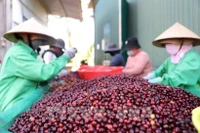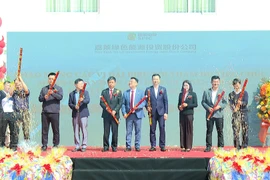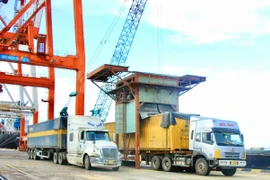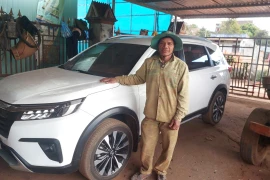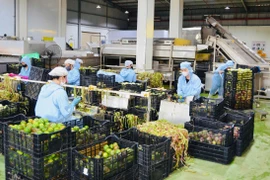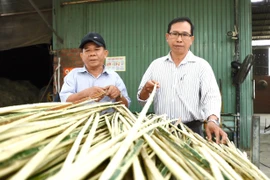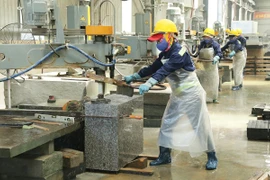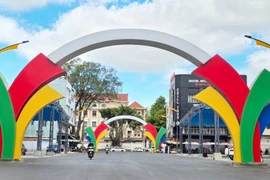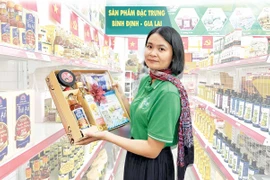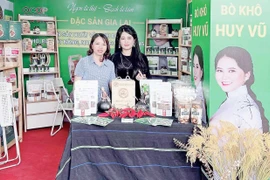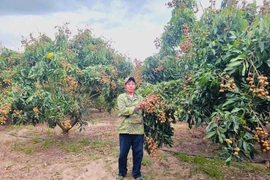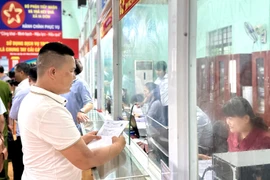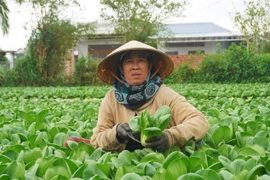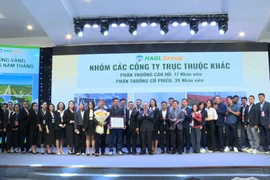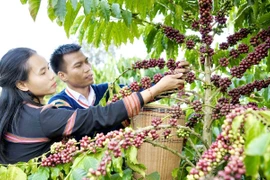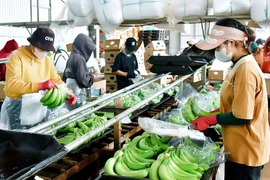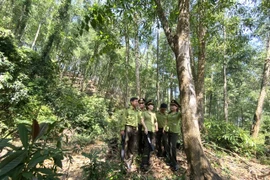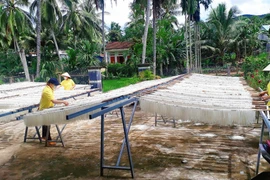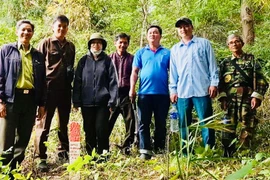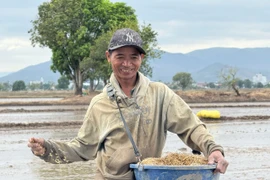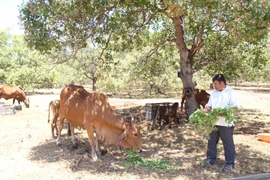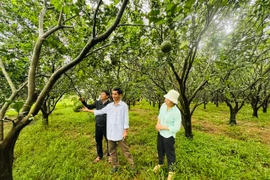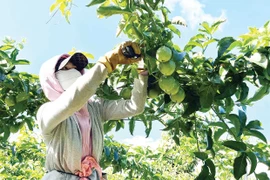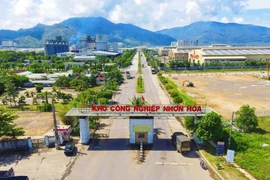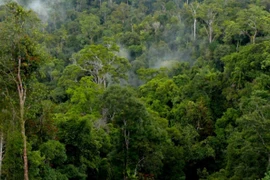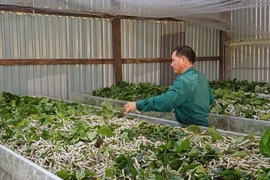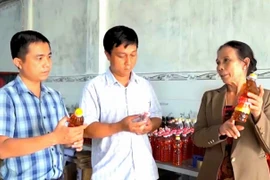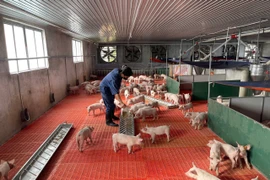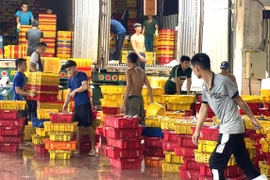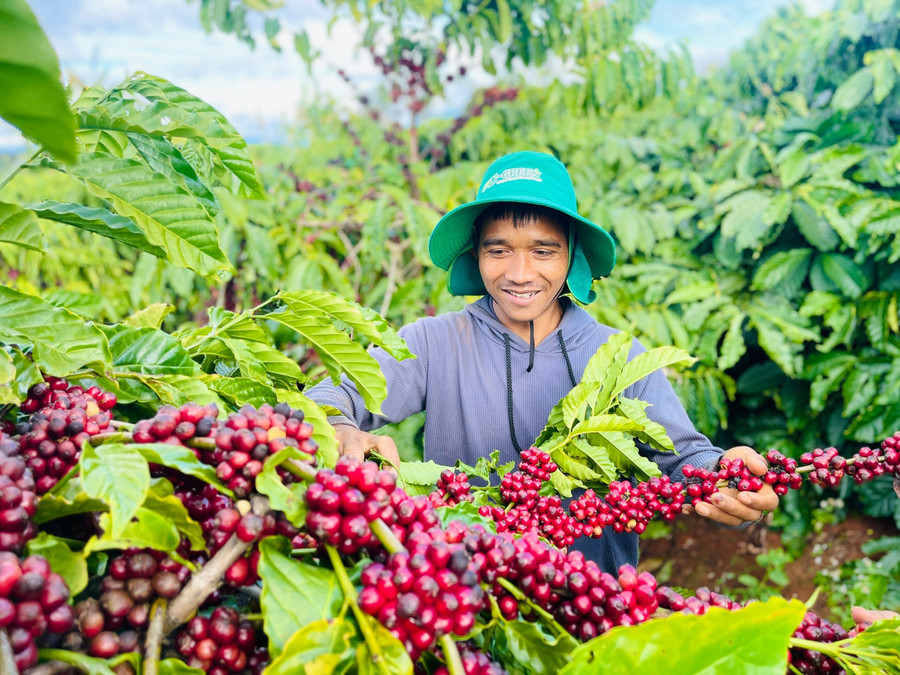
Anh A Ngum, from Bot Grek village in Gia Lai province, turned to organic farming after more than a decade of struggling with low yields and high costs caused by pests and chemical dependency on his one-hectare coffee plantation.
“In the past, I used chemical pesticides, but pests kept returning, and the soil degraded,” he said. “I realized this approach harmed not only the plants but also the land and our health.”
In 2022, A Ngum joined local training courses and visited model coffee farms across the province. Since then, he has adopted organic and microbial farming methods, eliminating chemical fertilizers, pesticides, herbicides, and growth stimulants. Instead, he uses livestock manure, organic waste, and biological products to enhance soil fertility, stimulate root growth, and reduce premature fruit drop.
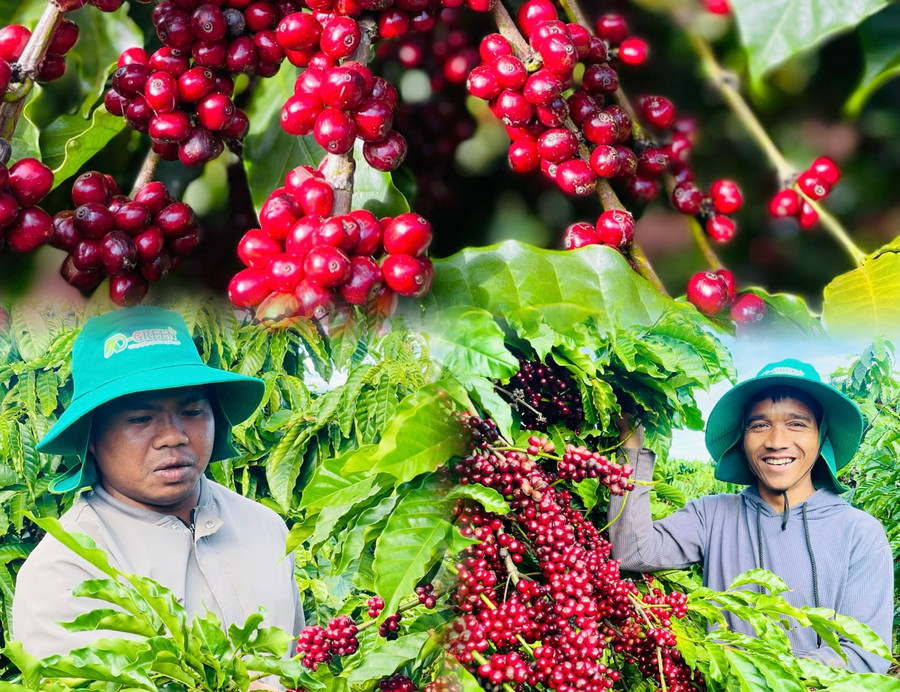
The results have been striking. His plantation now produces more than 3.5 tons of beans per hectare each harvest, earning his family nearly VND 300 million (about USD 12,000) per season after expenses.
By intercropping durian and avocado trees and cultivating wet rice on an additional 1,080 square meters, all managed organically, his household has secured both higher productivity and income stability.
Local authorities say A Ngum’s success is influencing broader change. Bot Grek village, home to 320 mostly Bahnar households with around 100 hectares of coffee land, has traditionally relied on chemical farming.
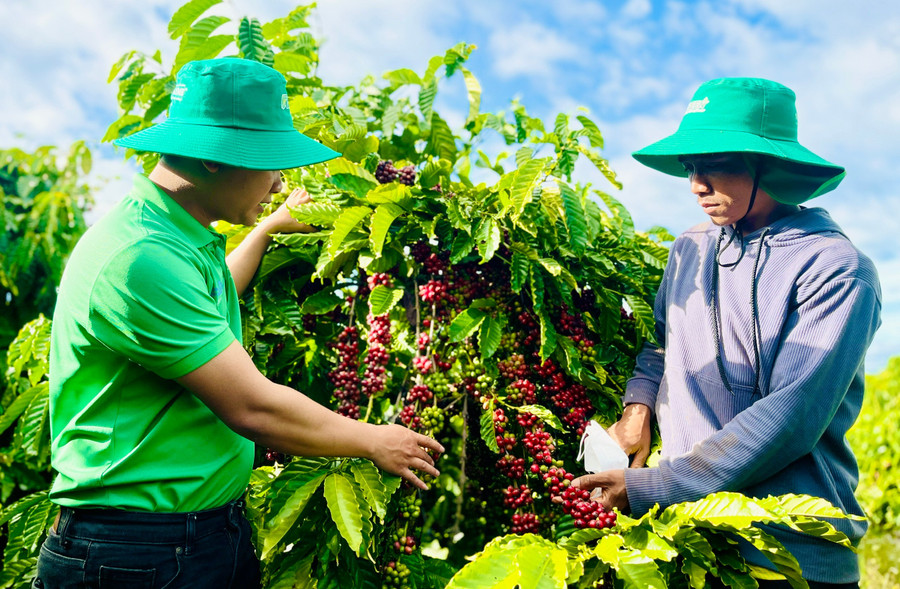
“When A Ngum began applying organic and microbial solutions and achieved visible results, others started following,” said village head Y Von Mlô. “Organic agriculture not only protects the environment but also safeguards farmers’ and consumers’ health.”
A Ngum hopes his methods will spread further. “Organic coffee is in high demand, and beans are now more uniform and larger. I want the Bahnar people to embrace sustainable farming for a better future,” he said.

